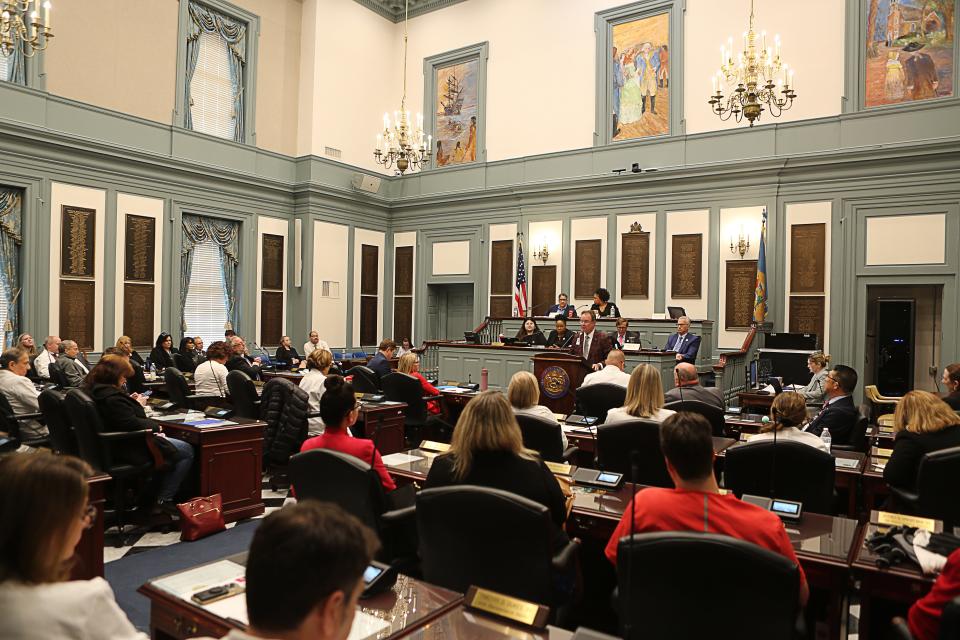Beware of Delaware government’s grab for even more control of your healthcare
History provides ample evidence that governments are not very proficient at managing processes and delivering services. This is not a criticism of hard-working people in government, but their efforts are often thwarted by an overwhelming tendency toward inefficiency.
A good illustration of the pitfalls of government overreach is legislation — HB 350 — primed to be passed within the next couple days by the General Assembly. The bill’s rather innocuous title, “An Act to Amend Title 16 Of the Delaware Code Relating To Hospital Costs,” belies the extent of its sweeping power grab over how large portions of healthcare are delivered in the First State.
Here's a look at what the legislation would do:
Chreate more bureaucracy and more cost to taxpayers. The bill establishes the new “Diamond State Hospital Cost Review Board.” It would seem that the last thing healthcare in the state and across the nation needs is yet more bureaucracy. Proponents can argue that the board is comprised of just eight members but we know that bureaucracies always grow (the board grew just during the drafting process). Hospitals will be required to provide reams of data to the board based solely on the whims of its members as there is no constraint on such requests apparent in the bill’s language. Who is going to review that mass of data? Certainly, it will require new analysts and data processors. The taxpayers will have to ante up for these new folks and hospitals will have to spend time and money preparing and supporting the information. Governments are good at creating and growing bureaucracies and mandates but not so good at evaluating and sunsetting them.
Shift decisions to those the state deems as “experts.” As it stands now, all but one of the board’s members will be appointed by the governor and confirmed by the state Senate. They will wield incredible power over hospitals that will be required to submit their budgets to the board for its review and approval. The board may, in its sole discretion, deem it necessary to, “engage with the hospital in revising” its budget. Imagine being the hospital management discussing possible revisions offered by the very board that can approve — or not — your institution’s budget. Hospitals that fail to meet the budget as approved by the board face underdefined penalties under the bill. Perhaps the most deleterious (but not really surprising) provision is that hospitals that actually outperform their budget may see the financial benefit of such confiscated, at the board’s discretion, to the state. Why would we want to take decisions about the optimal way to provide effective care in a hospital away from those who know the hospital, the patient population, the medical and other staff, and instead give those decisions to a board whose members simply cannot know such details?

Put greater pressure to go along to get along. Think of the breeding ground for conflicts of interest, cronyism and even corruption this presents. Large bureaucracies staffed by ”experts” and their staffs with overbearing power create huge incentives of questionable practices. How can the board’s members, if they are versed in healthcare, not have relationships and favorites across Delaware? It turns into making sure the hospital has the right friends in the General Assembly, the board or its staff, accomplished by political contributions and other means of ingratiating the hospital with the board.
Opinion: HB350 will hurt Sussex County just as much as Beebe Healthcare
Opinion: Delaware hospitals are under threat —political oversight will lose millions and upend care
Delaware should learn from the Farmers Bank debacle from half a century ago. Here was a bank owned by the state, with one-third of its board members appointed by the General Assembly, a shocking lack of accountability, and the potential for conflict of interest.
Does any of this sound familiar?
Even The New York Times, no enemy of government meddling in the economy, reported on the resulting fiasco, with evidence of malfeasance, the not-surprising conflicts of interest, acts of cronyism, and the resulting bad loans. The Times noted how the state ended up paying dearly, $20 million a year, for this failed attempt a government meddling. It was the just one example of what one knowledgeable Delawarean refers to as the “soft corruption of political control.”

But do we ever really learn? I’m reminded of something my father wrote over a decade ago, “Markets work . . . and decisions made for the many by an elite few do not.” If forced to choose, I would rather have a committee of doctors overseeing the Delaware General Assembly expenditures than a committee of politicians overseeing our hospitals.
Ben duPont is a longtime Delawarean, a venture capitalist and a philanthropist.
This article originally appeared on Delaware News Journal: Delaware HB 350 is a government overreach to control your healthcare

